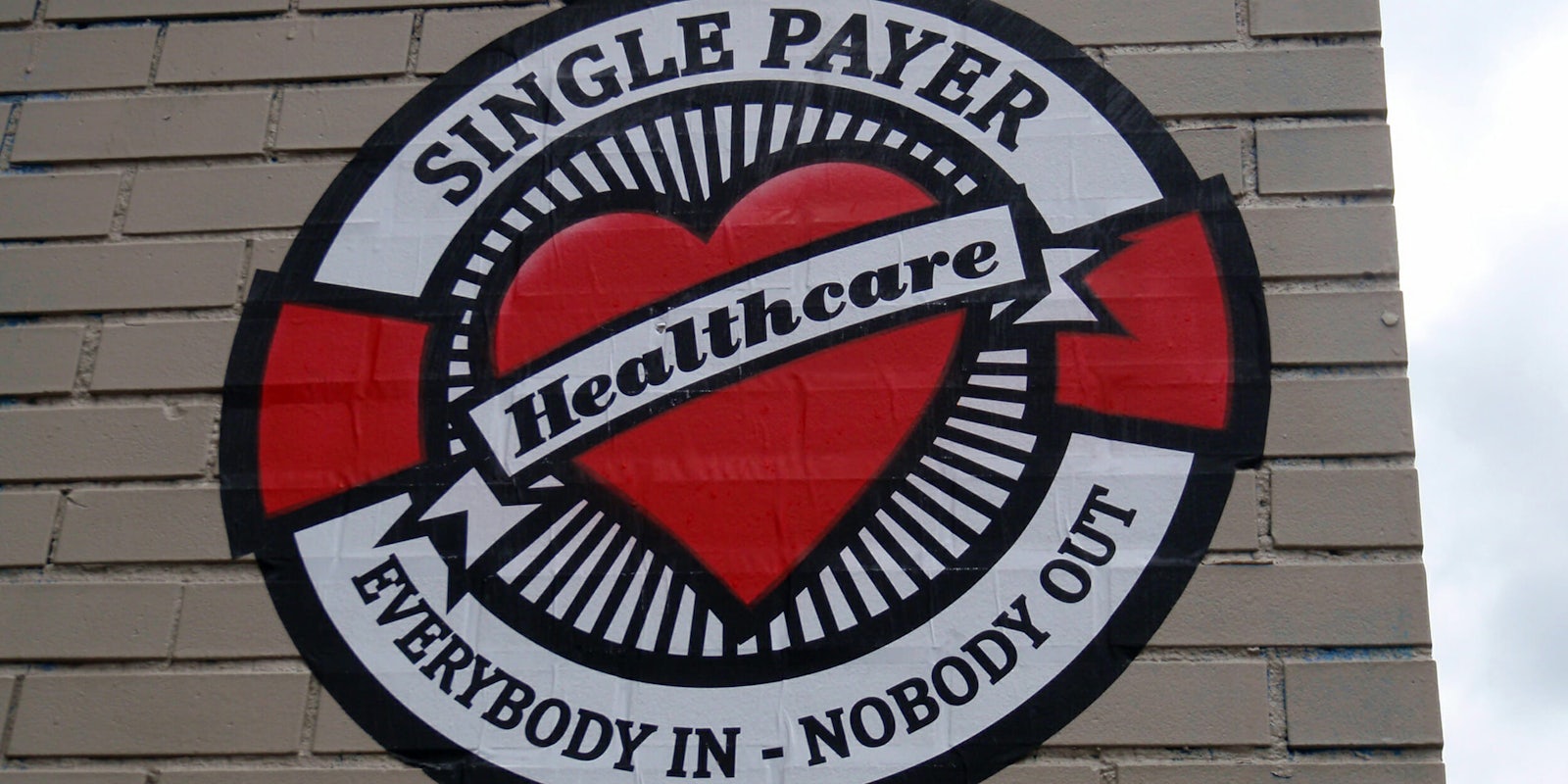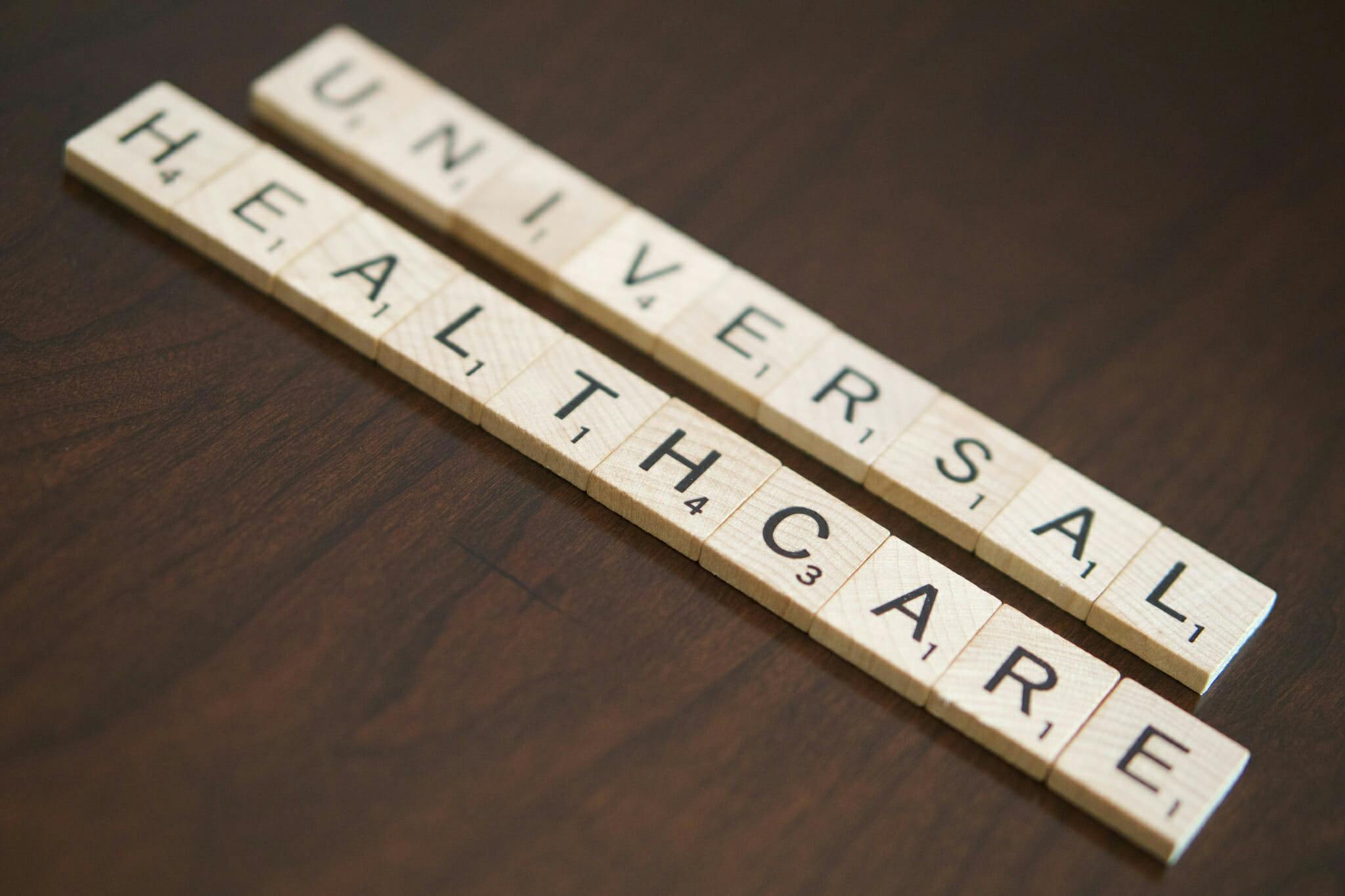If anything can be understood by the Republican drive to repeal the Affordable Care Act (ACA) it’s that health care is a hot-button issue in the U.S., one that’s been debated for decades.
Elsewhere in the developed world, it’s a settled matter that centers around giving every citizen accessibility to health services. So, as the Senate Republican health care bill moves toward a vote, it’s interesting to take a look at the alternative—universal health care.
What is universal health care?
Universal health care (UHC) is a broad term that describes the provision of quality health services to every citizen while protecting them from the financial consequences that the use of expensive treatments or medicines often incur.
The aim is to give everyone, regardless of social status or income, access to a progressive range of essential health services, including education services, as well as a full breadth of treatment and care services—although some medical interventions may not be covered. UHC often also encompasses what are called population-based services and health awareness campaigns.
What are the pros and cons of universal health care?
The sudden onset of an illness or disease can force people of lower income into poverty as they try to pay for their treatment, causing people to spend their savings and driving many into debt. So, the key to applying UHC successfully is inextricably linked to protecting people from health costs by spreading the financial risk across the population.
Many countries rate UHC as fundamental to positive health outcomes across their populations, corroborating the World Health Organisation’s assessment that UHC not only improves quality of life across society but is also linked to sustained economic growth and development.
As such, UHC has generally been moved on as a key policy objective in both developed and developing nations. In fact, as part of the United Nations’ Sustainable Development Goals, member states have committed to implementing and working towards UHC by 2030.
The primary arguments against switching to universal health care in the United States boil down to money, options, and trust in government.
As we’ve seen to a lesser extent with the ACA, the cost of insuring more people—or, in the case of a UHC system, everyone—means more people have to chip in. This often comes in the form of taxes and other payments (more on this below). This means some people might pay more than they otherwise would at certain points in their lives, while others might pay less. Some Americans are opposed to the idea that their money might go toward keeping a stranger healthy or alive. Others want the option to spend their money on something other than health insurance, even if that puts them at higher risk.
Another factor is choice. Under a UHC system, everyone is effectively treated equally and options for treatments may be limited. This is great for people who are at a financial disadvantage, but people with the funds to spend more for better (or simply different) treatments may balk at the idea of relying on UHC.
Finally, there’s the question of whether the federal government can effectively and efficiently run a health care system for hundreds of millions of Americans in all 50 states. One only need explore the problems with the Department of Veteran Affairs—inadequate care, long wait times for patients, and more—to see how a government-run health care system for everyone could potentially devolve into a nightmare.
How are universal health care programs paid for?
The health care models and financing systems vary from country to country, but most countries provide total coverage through a blend of publicly owned and private systems. On occasion, however, a government may directly and solely manage health care provision on behalf of the citizenry.
UHC is often paid for by several sources. In most countries, funding is secured through taxation, often supplemented by private and compulsory contributions made on behalf of an employee by an employer or company.
Is UHC common around the world?
Many economically developed countries in the world implement universal health care in one form or another. The countries of Europe and Scandinavia almost all deliver UHC, apart from a couple of troubled countries.
The United Kingdom has offered its citizens a National Health Service since 1948, alongside a market for private insurers. Other wealthy countries like Australia, Russia, Saudi Arabia, New Zealand, Brazil, Japan, and South Korea have provided UHC for more than half a century.
Developing countries like China, which supports the world’s largest health care system already, is working toward UHC for its colossal population of 1.37 billion people.
In North America, Canada has successfully implemented health care provision for every citizen since the 1960s, in stark contrast to its southerly neighbor.

Why does the U.S. not have universal health care?
There is no real consensus on how health care should be implemented in the U.S., and there are many reasons for this. When it comes to UHC, the strongest opposition in the U.S. from players in both the political and business spheres.
On one hand, interest groups spend big money lobbying on behalf of the powerful private health insurers industry. In 2009, when Obamacare legislation was being drafted, health-sector lobbyists doubled in number and spending hit more than $1.2 billion. Meanwhile, ultra-conservatives with limited government ideologies believe that UHC stands in contradiction with American values. Groups like the House Freedom Caucus have worked to restrict both government subsidizing of health services and what those essential services include.
Money and ideology aside, a January poll from Pew Research shows that a 60 percent majority of Americans say the government should be responsible for ensuring health care coverage for all Americans—effectively backing UHC.
Perhaps the loudest vocal political force for American UHC is Sen. Bernie Sanders (I-Vt.), who ran for the Democratic presidential nomination last year. Providing health care for all Americans became one of his key campaign pitches in his race against Democratic rival Hillary Clinton.
“There is one major country that does not guarantee health care to all people,” he said during a February 2016 PBS debate between Sanders and Clinton. “There is one major country—the United States—which ends up spending almost three times per capita what they do in the U.K. guaranteeing health care to all people, 50 percent more than they do in France guaranteeing health care to all people, far more than our Canadian neighbors, who guarantee health care to all people.”
In just one decade, the country has moved from establishing the Affordable Care Act, known as Obamacare, which enfranchised over 24 million citizens using government subsidies and funding.
For social democrats like Sanders, the Affordable Care Act was good, but it didn’t go far enough.
The U.S. is now retreating further from UHC. Senate Republicans recently unveiled their plan to repeal and replace Obamacare, which greatly cuts funding for Medicaid—a government-run insurance plan that serves over 60 million Americans—among many other provisions.
Still, many Americans are not sold on the ideas Republicans have offered for replacing Obamacare. Even if it passes as Obamacare did, the debate is clearly far from settled.



